Can chickens eat chili peppers? A question often asked, and the simple answer is: Yes, they can. Chickens are unique creatures with varied diets, and surprisingly, their palate extends to chili peppers without experiencing the hot sensation that humans often endure.
From my personal observations on the farm, it’s clear that chickens have distinct dietary habits. An event that particularly struck me was witnessing a chicken casually pecking at a fallen chili pepper without any apparent discomfort. This intriguing incident provoked a deeper exploration into the subject.
This article will dissect the topic of chickens and chili peppers, addressing everything from understanding the basic chicken diet, the science behind their interaction with capsaicin, to real-world farming practices. Join me as we explore this fascinating journey to answer the burning question: Why can chickens eat chili peppers without flinching?
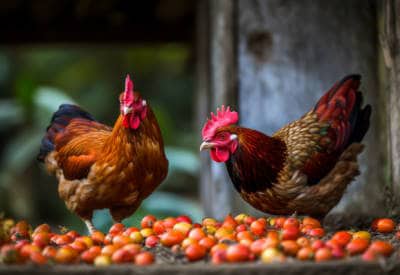
Understanding the Chicken Diet
In the intriguing world of chickens, their dietary habits hold a place of great importance. They’re omnivores with an incredibly diverse diet, but this doesn’t mean they can consume everything without consequence.
Basic Nutritional Needs of Chickens
From grain mixtures to fruits, vegetables, and bugs, chickens need a balanced diet to thrive. Their daily intake should consist of proteins for growth and egg production, carbohydrates for energy, and minerals for strong eggshells. Vitamins are also vital to maintain their health and immunity.
Common Foods in a Chicken’s Diet
Many foods find their way into the average chicken’s meal. Seeds and grains are their favorites, but they also love pecking on greens, vegetables, and fruits. They’re quite the opportunistic eaters and enjoy a good bug or worm hunt as well!
Potential Food Risks for Chickens
Despite their broad dietary habits, some foods pose a threat to chickens. For instance, certain raw beans and plants like rhubarb leaves contain toxins that can harm them.
[ChickenAffiliate]
The Debate: Can Chickens Eat Chili Peppers?
Ever heard of chickens chowing down on some spicy chili peppers? It might seem odd, but this topic has sparked lively debates among the chicken-raising community.
General Perceptions and Misconceptions
The idea of chickens consuming chilies is met with skepticism by many. Most would argue that the fiery heat of chili peppers could harm these feathered creatures.
Scientific Viewpoints on the Matter
Contrary to popular belief, scientists argue that chickens lack the necessary receptors to sense capsaicin’s heat. They’re immune to the burning sensation we humans experience when eating chili peppers.
Existing Research on Chickens and Chili Peppers
Some research also suggests that capsaicin could even benefit chickens, contributing to improved health and growth. However, further studies are needed to fully understand the implications.
The Science Behind Chickens and Capsaicin
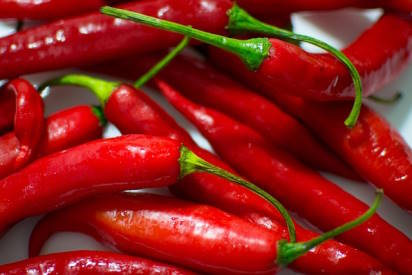
Capsaicin and chickens, a curious combination that merits a deep dive into the science involved.
What is Capsaicin?
Capsaicin is the active compound in chili peppers that gives them their characteristic heat. In humans and many animals, it triggers a burning sensation.
Capsaicin Sensitivity in Humans vs Chickens
Contrary to humans, chickens do not possess the same sensitivity to capsaicin. Humans have a specific receptor, the TRPV1 receptor, that detects capsaicin and causes the sensation of heat. Chickens, on the other hand, lack this receptor, making them immune to the heat.
The Role of TRPV1 Receptors in Detecting Capsaicin
The TRPV1 receptor plays a significant role in detecting capsaicin in our bodies. This receptor, present in humans and mammals but not in chickens, is activated by heat and certain chemical compounds, including capsaicin.
Health Effects of Chili Peppers on Chickens
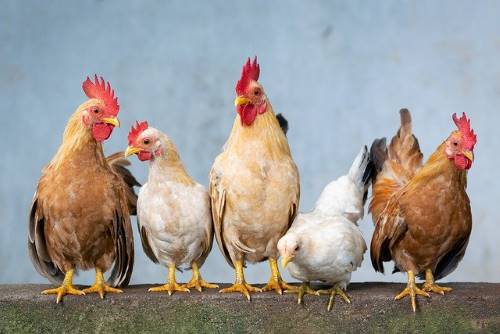
Delving into the health implications of chickens consuming chili peppers helps us better understand this unique relationship.
Potential Benefits of Chili Peppers for Chickens
Chili peppers, beyond their heat, are rich in vitamins A and C. These can bolster the immune system of chickens and potentially enhance their health and productivity.
Possible Health Risks Associated with Chili Peppers
Despite their immunity to capsaicin, there may still be risks associated with feeding chickens chili peppers. Too much of any food can lead to imbalances in their diet. Always ensure diversity and balance in their meals.
Precautions to Take if Feeding Chickens Chili Peppers
If you decide to introduce chili peppers to your chickens, do it gradually and monitor their response. Also, remove any stems or leaves, as these could pose a choking hazard.
Empirical Evidence: Farming Practices Involving Chili Peppers
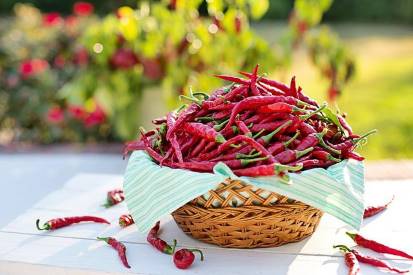
Real-world scenarios provide invaluable insights into how chili peppers influence chicken farming practices.
Cases of Farmers Feeding Chickens Chili Peppers
Some farmers have incorporated chili peppers into their chickens’ diets, reporting no adverse effects. On the contrary, these farmers claim that the peppers have contributed to the chickens’ health.
Impact of Chili Peppers on Chicken Behaviour and Health
According to anecdotal evidence, chickens consuming chili peppers exhibit normal behaviour and health. Some farmers even believe it contributes to the vibrant color of the egg yolks!
Anecdotal Evidence from Poultry Keepers
Many poultry keepers share stories of chickens pecking on chili peppers straight from the garden without any noticeable ill effects. These stories further affirm the idea that chickens can handle chili peppers just fine.
Guideline for Feeding Chickens Chili Peppers
If you’re considering introducing chili peppers into your chickens’ diet, here’s a useful guide.
When and How to Introduce Chili Peppers into a Chicken’s Diet
Introduce chili peppers slowly into their diet and watch for any changes in behavior or health. It’s always better to err on the side of caution.
Monitoring Chickens after Chili Pepper Consumption
Keep an eye on your chickens after they consume chili peppers. Look for any signs of distress or discomfort, although it’s unlikely due to their immunity to capsaicin.
Alternatives to Chili Peppers for Varied Diet
While chili peppers can be an interesting addition to a chicken’s diet, there are plenty of other foods to provide variety. Fruits, vegetables, and grains should form the majority of their diet for optimal health.
Impacts on Egg Production and Quality
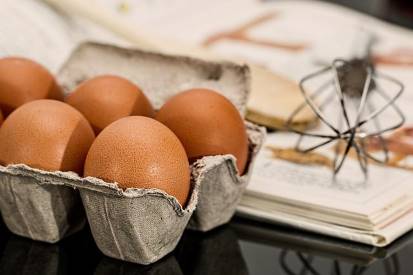
There’s a popular belief in some chicken-rearing communities that the inclusion of chili peppers in a chicken’s diet might influence egg production and the quality of eggs.
Egg Production
Anecdotal evidence suggests that chickens fed on a diet that includes chili peppers continue to lay eggs regularly, with no apparent impact on the frequency of egg-laying. However, there’s no scientific research to conclusively prove that chili peppers can either enhance or decrease egg production.
Egg Quality
Some chicken keepers who have introduced chili peppers into their chickens’ diets believe it could contribute to the color of the egg yolks. They report the yolks of eggs from chickens fed chili peppers to be more vibrant in color. However, this is also anecdotal, and scientific studies are needed to confirm these claims.
It’s important to note that the potential impacts on egg production and quality should not be the sole reason to include chili peppers in your chickens’ diet. The health and well-being of the chickens should always be the priority, and any dietary changes should be made with their overall nutrition in mind.
What Else May Be Dangerous for Chickens to Eat?
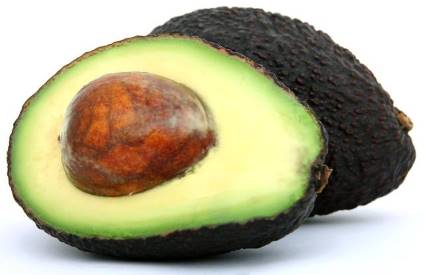
When considering what to feed your chickens, it’s crucial to understand not just what they can eat but also what they should avoid. Chickens are not picky eaters, but certain food items can have adverse effects on their health. Let’s examine five such items.
Avocado
While chickens love to peck on fruits, avocados should not be on their menu. The pits and skins contain a toxin called persin, which can be harmful to chickens. While the flesh is generally considered safe, it’s better to be safe than sorry and keep avocados off their diet.
Read More: Can Chickens Eat Avocado? The Truth About This Superfood
Mushrooms
Mushrooms can be a tricky food item. While many are safe, some wild mushrooms can be toxic. Chickens, like humans, are not adept at differentiating between the safe and toxic varieties. It’s safer to avoid feeding them mushrooms unless you’re sure they’re a non-toxic variety.
Read More: Can Chickens Eat Mushrooms? Revealing The Fungi Mystery
Onions
Onions are another no-no for chickens. They contain a compound called thiosulphate, which can cause anemia in chickens if consumed in large amounts. Occasional small amounts might not cause harm, but regular feeding of onions should be avoided.
Read More: Can Chickens Eat Onions? Unpeeling The Surprising Truth
Garlic
Unlike onions, garlic can actually be beneficial to chickens when fed in moderation. Garlic contains natural antibacterial and antiviral properties that can boost chickens’ immune systems. However, too much garlic can lead to strong-tasting eggs, so keep it to a minimum.
Read More: Can Chickens Eat Garlic? Unpeeling The Truth
Chives
Chives, much like onions, contain compounds that can be harmful to chickens. They can lead to digestive issues and affect the red blood cells, potentially leading to anemia. It’s best to steer clear of feeding chives to your chickens.
Read More: Can Chickens Eat Chives? 5 Excellent Benefits
Can chickens eat chili peppers – final thoughts
We’ve come a long way from our burning question, Can chickens eat chili peppers? The answer, as we’ve found out, lies not only in their unique biology that spares them the fiery torture of capsaicin but also in the real-world evidence where chickens gobble up chili peppers without a care in the world. The potential health benefits that these hot veggies bring to our feathered friends add an extra layer of interest to this spicy subject.
So, the next time you see a chicken bravely pecking away at a chili pepper, remember they’re not showing off their heat tolerance; they’re simply enjoying a fiery treat oblivious to the heat.
Related Articles:
